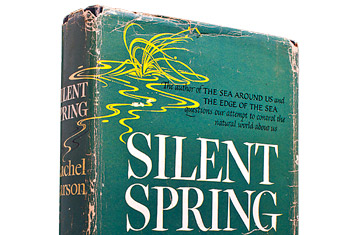
(2 of 2)
The Godwinning of Carson ignores a few facts. Carson took pains to make it clear that she wasn't calling for the banning of all pesticides, especially those that might be able to protect human beings against insect-transmitted diseases. Carson simply wanted to bring some balance to the use of powerful chemicals at a time when ecology was barely considered a science and industry had license to do whatever it wanted in the name of progress. As for DDT, many experts believe the pesticide would have been less effective against malaria-carrying mosquitoes in the scattered and remote villages of sub-Saharan Africa than it was in more densely populated North America. Africa's staggering malaria death toll has more to do with decades of Western indifference than it does with a single book.
If Silent Spring gave birth to the modern green movement, the critical reaction to it created the blueprint for how industry defends itself against environmentalism. Whether it's pesticides, asbestos or air pollution, the battle plan is the same: question the science, attack the scientists' credibility and warn of unbearable costs. The plan hasn't worked: the U.S. has become cleaner and healthier since Silent Spring, and the Dark Ages that serious men warned us about have yet to descend. But the fight is far from over, as the polarized debate over climate change demonstrates. Rachel Carson may have prophesied a silent spring, but the battle between her acolytes and her enemies will be long and loud.
